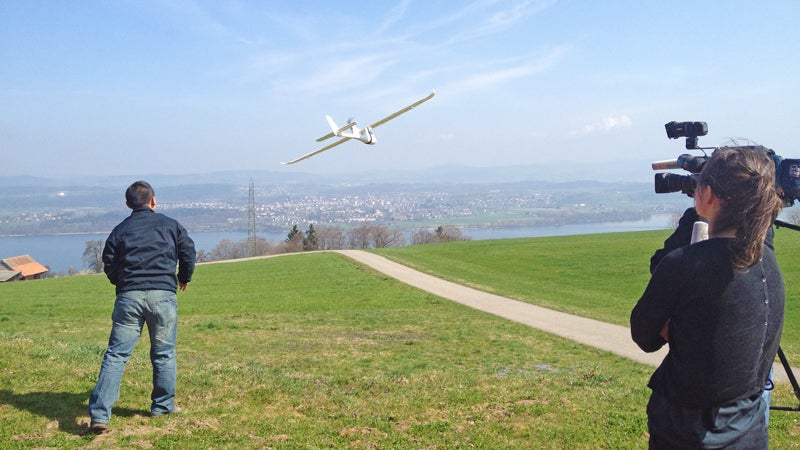Despite our best efforts to stunt it, abuse of nature persists. But drones—those flying bogeymen of Big Brother—could be rebranded as heroes as they gain extensive use in monitoring environmental and animal welfare where humans can’t easily go.
For one, drones are increasingly being used to investigate poaching in large stretches of national parks, and now a new program in Belize is taking that effort over water. The country tried to protect its coral reef system, the largest in the Western Hemisphere, by setting up a slew of protected areas, but monitoring huge sections of ocean with a limited staff is no easy task.
The solution: At the beginning of lobster season in June, the Belize Fisheries Department began tracking illegal fishing with two drones made possible by the Wildlife Conservation Society and ConservationDrones.org, an Australian nonprofit that the New York Times reports has built about 100 drones for the use in conservation. Designed to withstand and excel in unique environments, the drones have flown over water, through jungles, and around beaches.
Having a lot of land to monitor impedes efficient protection, but so do legal issues closer to home. Societies concerned with the safety of factory farm animals have been set back by “ag-gag” laws, rules that outlaw undercover recording of farm operations. Independent journalist Will Potter says he’s found a loophole in the rules: They don’t explicitly say you can’t record from the air. Inspired by satellite images of farms (taken within public space), Potter broke out the drones.
This might be illegal, but it will be years before courts decide what to do about it. Meanwhile, Potter will publicly document the scale and degree of factory farm operations. His operation is endorsed by PETA, which has been using and selling drones to stem illegal hunting since 2013.
“If Will Potter uses drones legally to shine a spotlight on factory farming and slaughter practices, we’re all in favor of it,” PETA president Ingrid Newkirk said in an interview with NPR’s The Salt blog.


